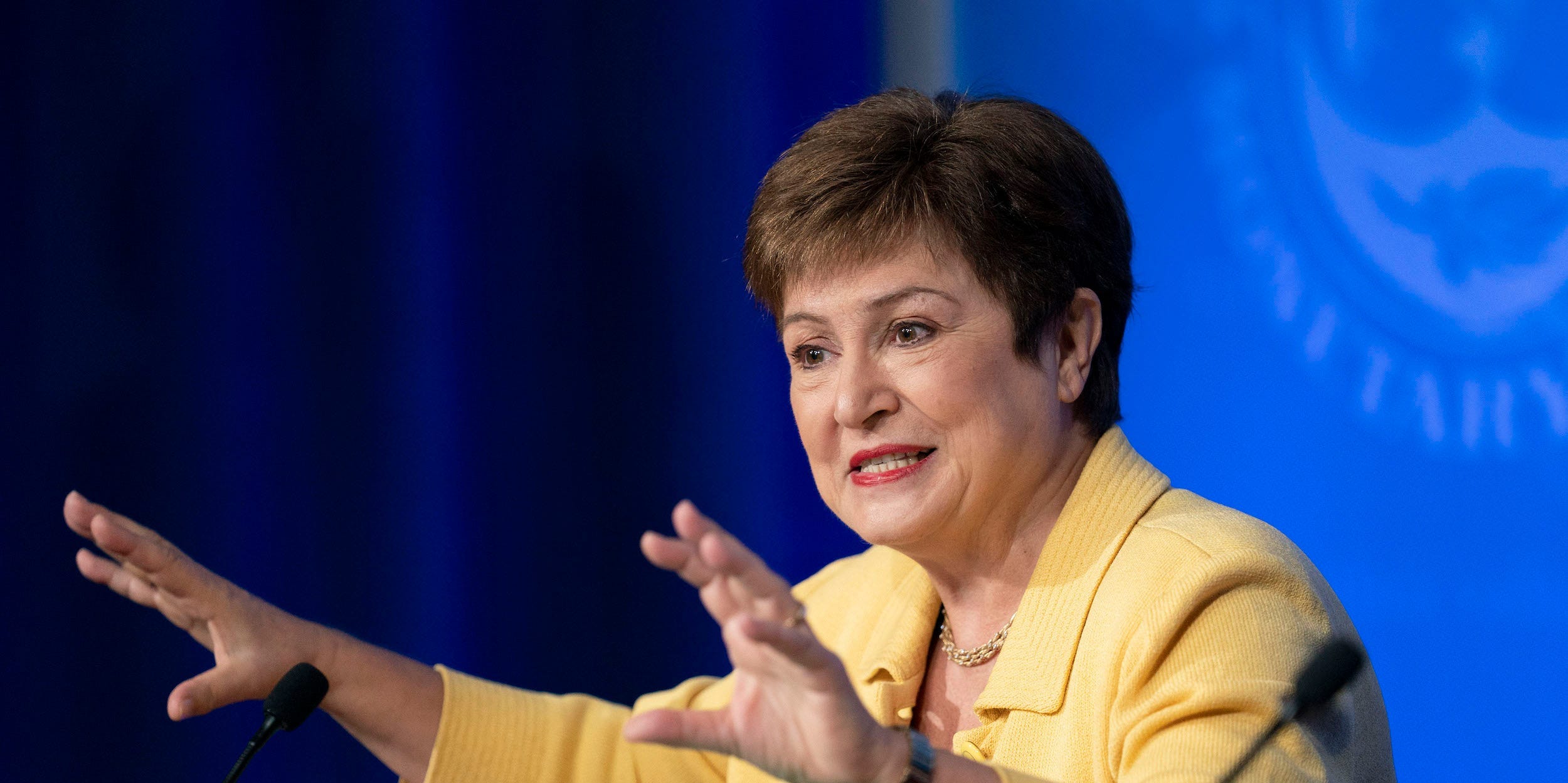
Liu Jie/Xinhua/Getty
- “Faster progress on medical solutions could speed up the recovery; it could add almost $9 trillion to global income by 2025,” the International Monetary Fund’s managing director Kristina Georgieva said Thursday at its committee meeting:
- The IMF chief added this can help narrow the gap between rich and poorer countries.
- The organization predicted in its latest outlook report this week, world GDP will fall by 4.4% in 2020.
- The committee called for further private sector participation in addressing debt relief for the poorest countries.
- Visit Business Insider’s homepage for more stories.
The global economy could grow by $9 trillion by 2025 and stage a faster recovery from COVID-19 with greater international cooperation on global vaccines, the International Monetary Fund’s chief said Thursday.
“Faster progress on medical solutions could speed up the recovery; it could add almost $9 trillion to global income by 2025,” IMF’s managing director Kristina Georgieva said at the fund’s committee meeting on Thursday.
Georgieva added this can help bridge the gap between poorer and richer countries.
The organization said in its latest outlook report this week the world GDP will contract by 4.4% in 2020.
While this was slightly better than the IMF’s earlier prediction of a 4.9% drop, the fund said the global economy is far from staging a complete rebound and downgraded its 2021 growth forecast to 5.2% to 5.4%.
Georgieva said global public debt is expected to swell to a record high of 100% of GDP in 2021, mainly because countries need to boost spending to fight COVID-19 and secure a recovery.
Global debt across all sectors rose to more than $255 trillion in 2019 and global debt is now at least $87 trillion higher than it was during the start of the financial crisis, according to the Institute for International Finance.
She called for urgent action particularly for low-income countries that have watched their already-sizeable debt burdens rise sharply this year.
Debt in emerging and developing economies grew to a record $55 trillion last year according to the World Bank. Georgieva said further measures such as greater privatization could help reduce this figure.
The G20 extended its Debt Service Suspension Initiative this week for at least another six months from the end of 2020.
The DSSI, which was approved in April, was a joint effort between the World Bank and the IMF that allows poorer countries to suspend some debt repayments to help them through the pandemic.
The IMF stressed the need for equal and affordable access to effective COVID-19 vaccines as a means of protecting the economy from longer-lasting damage.
More than 10 coronavirus vaccines are in late-stage clinical trials at the moment, according to the World Health Organization's chief scientist Dr. Soumya Swaminathan.
Front-runners in the race include Moderna, AstraZeneca, among others.
Georgieva told CNBC separately she has "no doubt" the US will approve another fiscal package, despite a gridlock that has persisted in Washington DC over the size and nature of a new set of measures since July.

